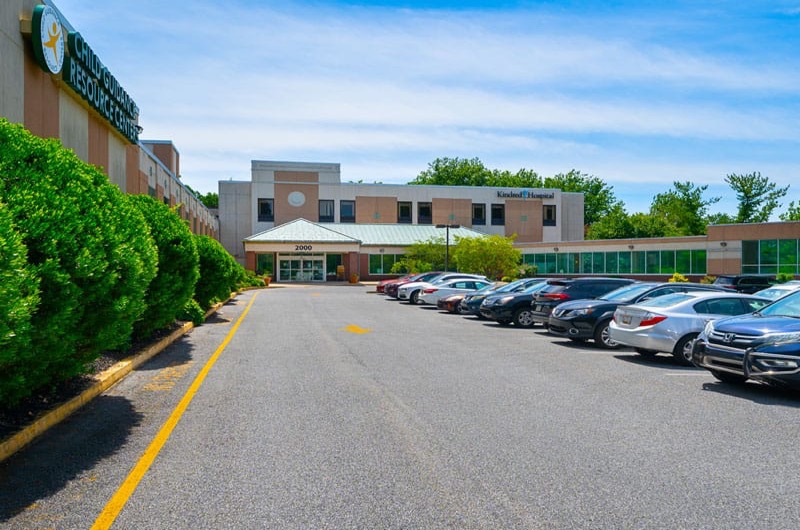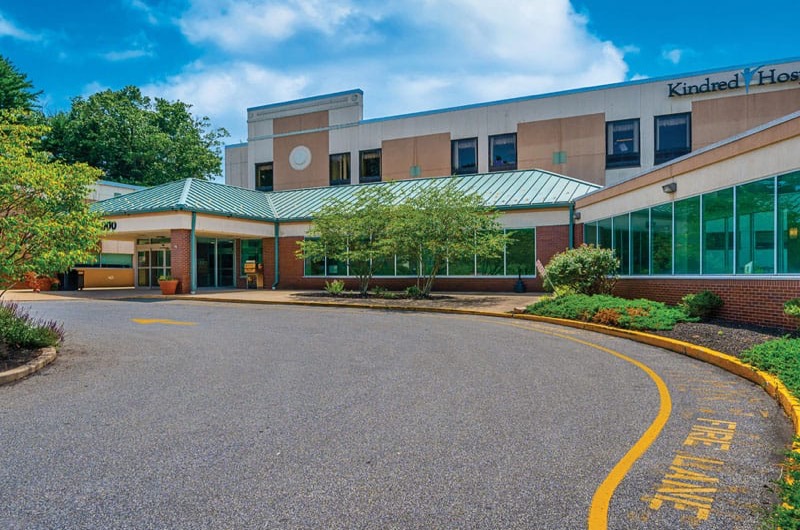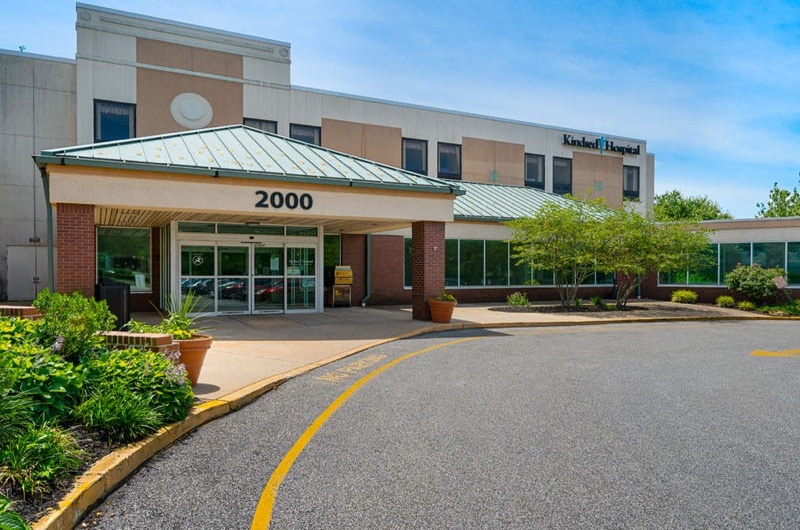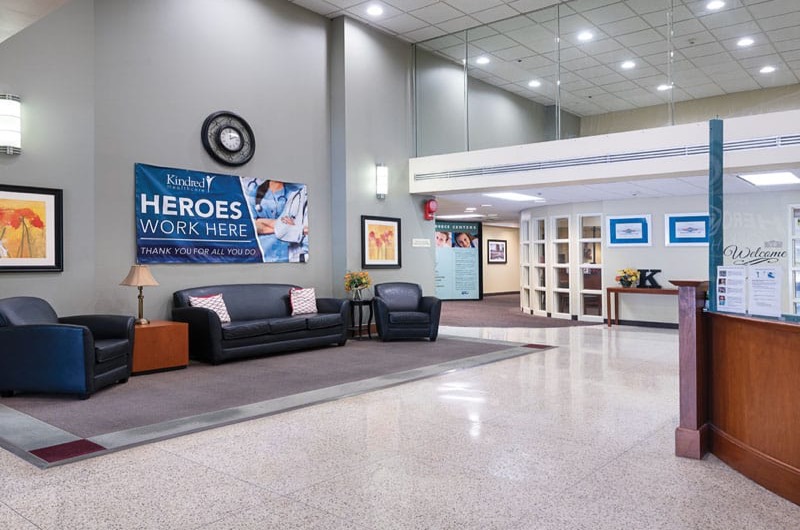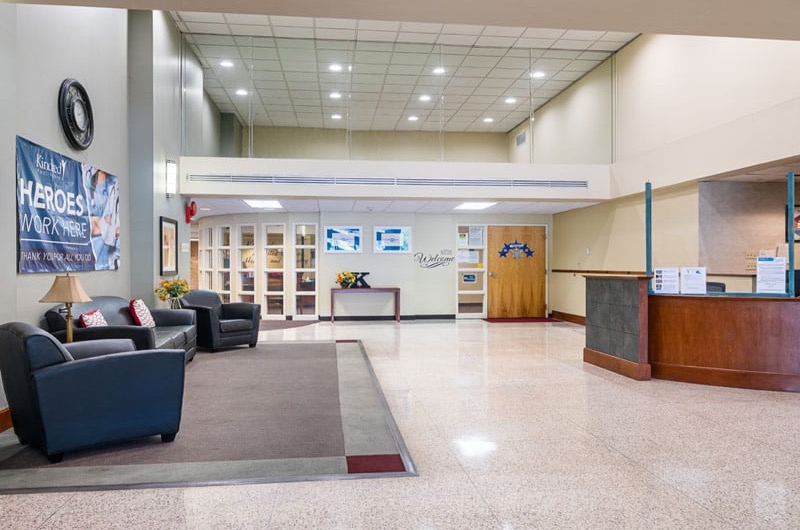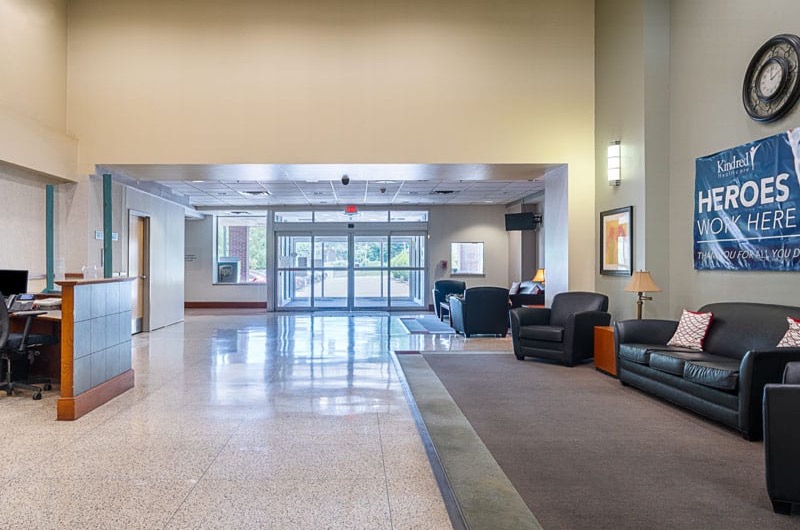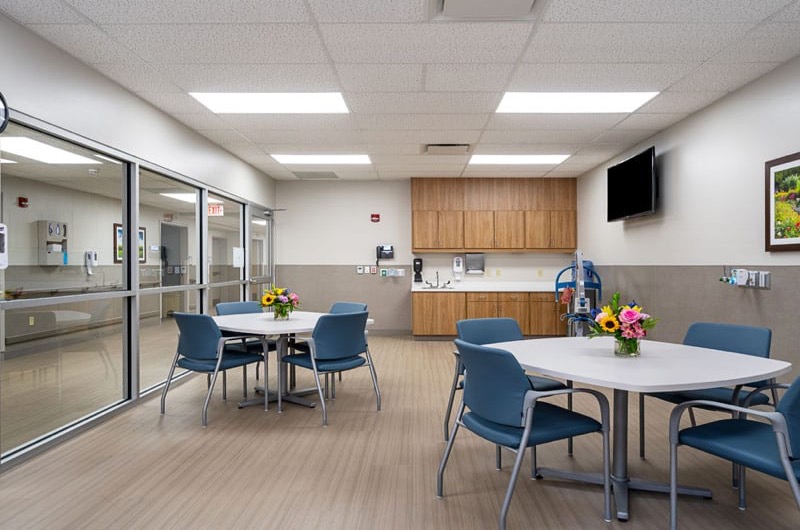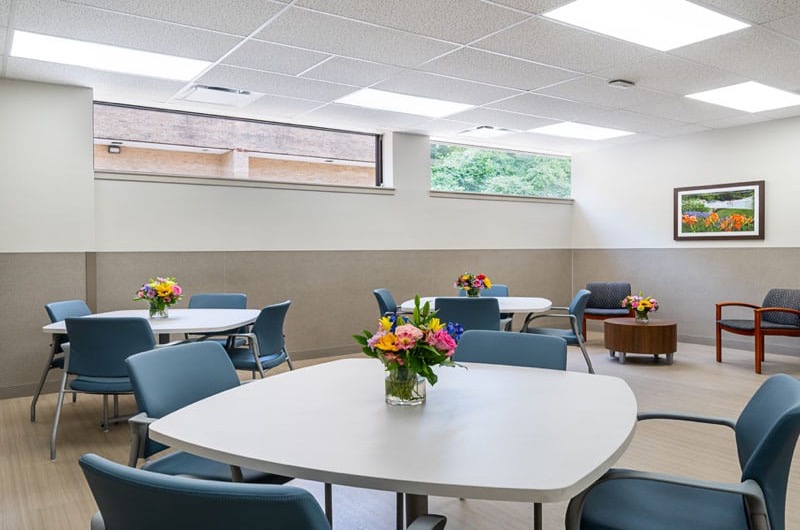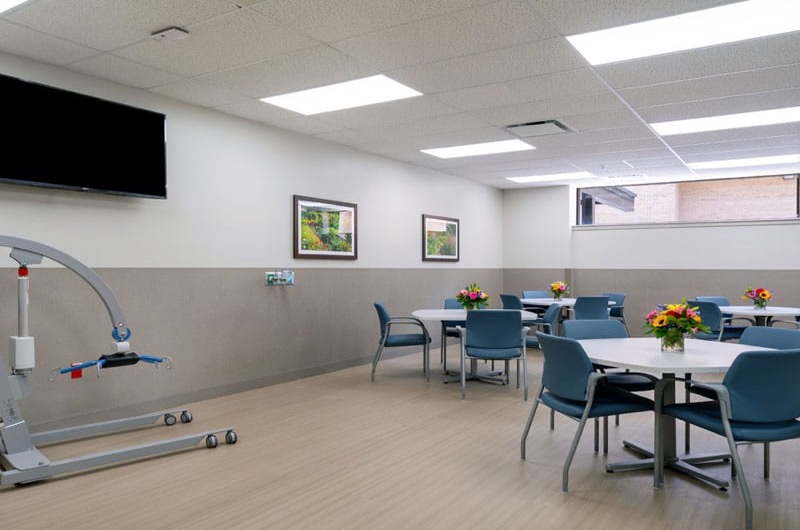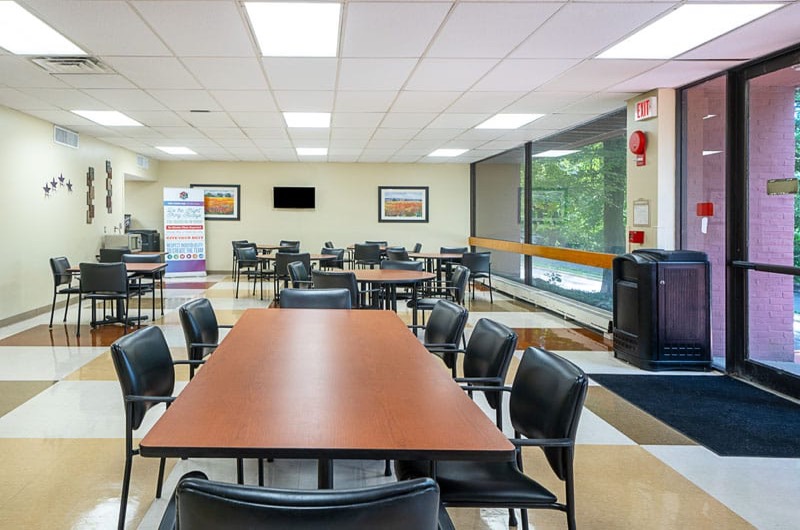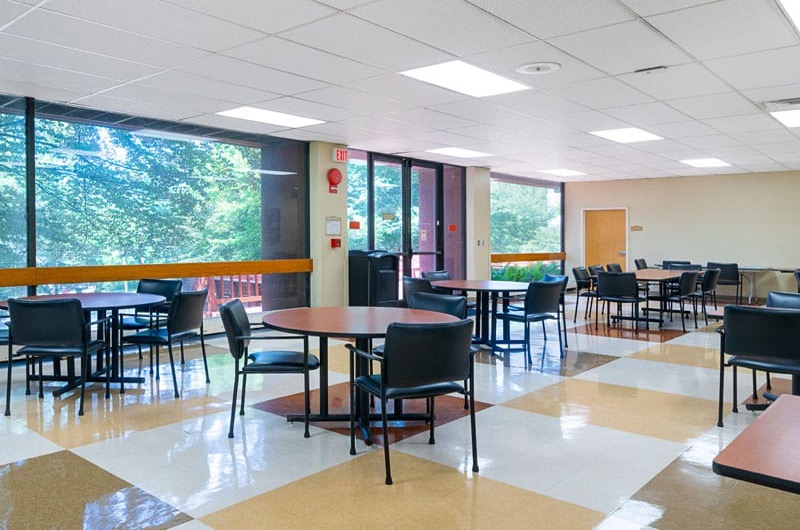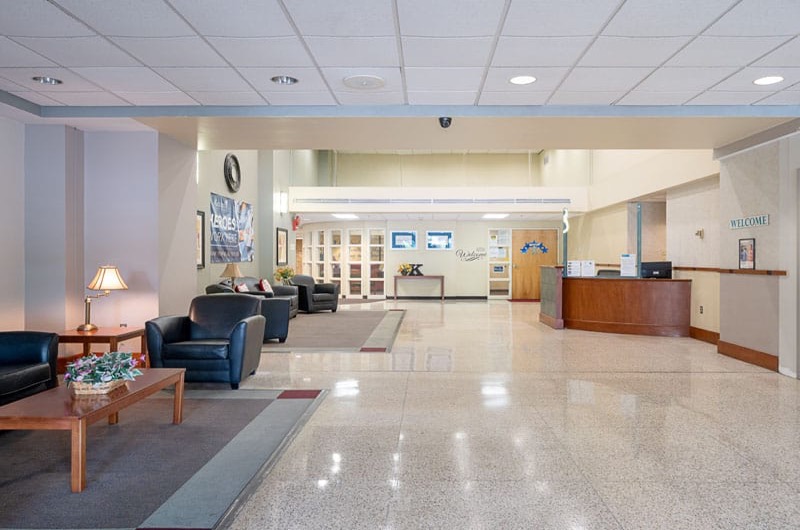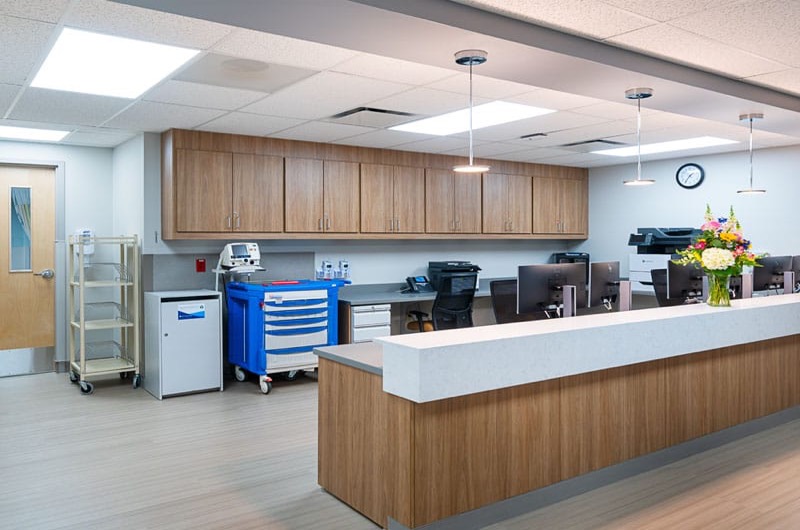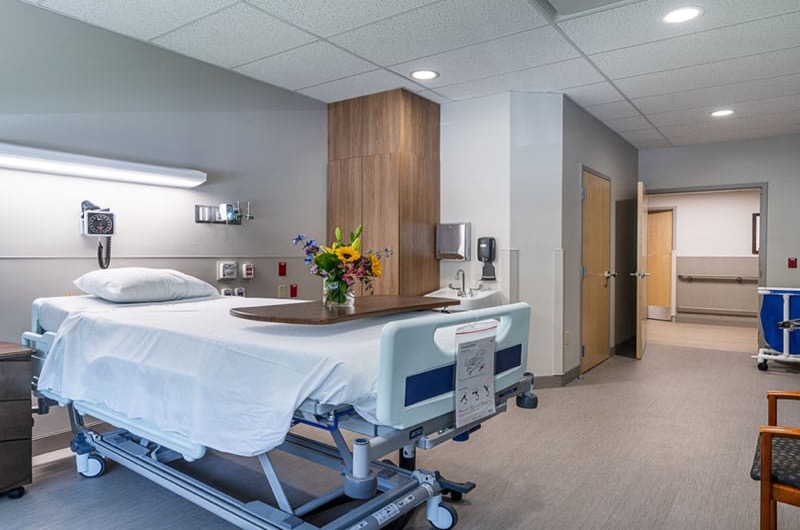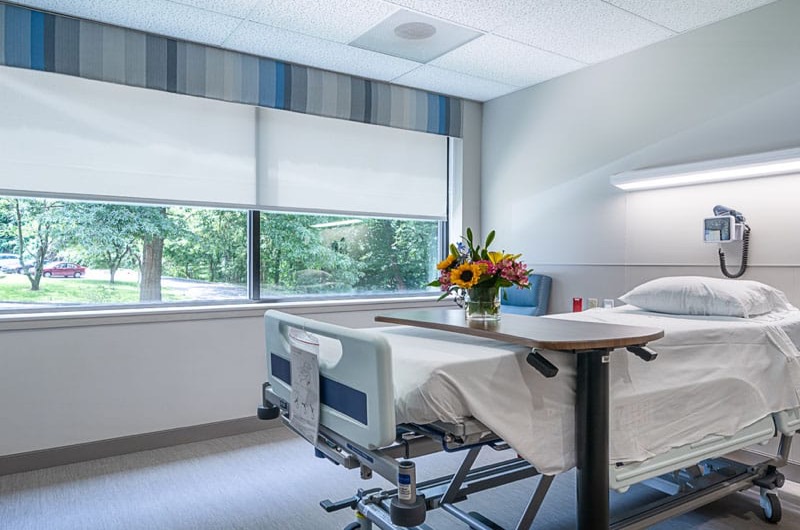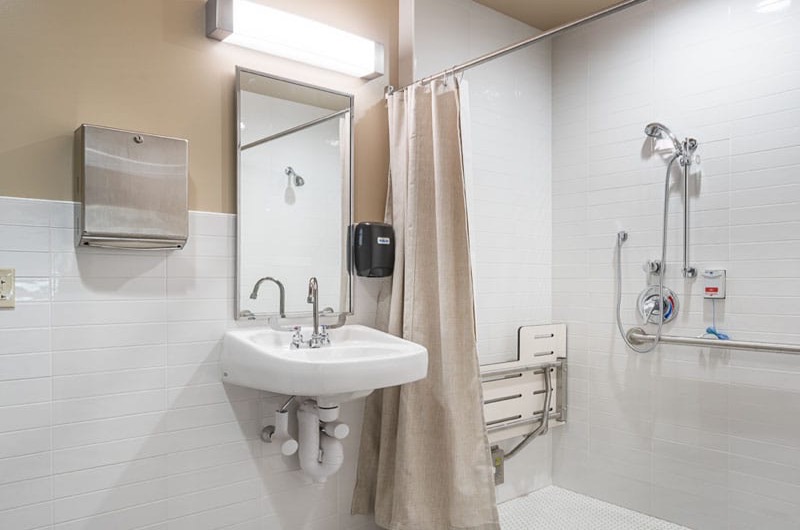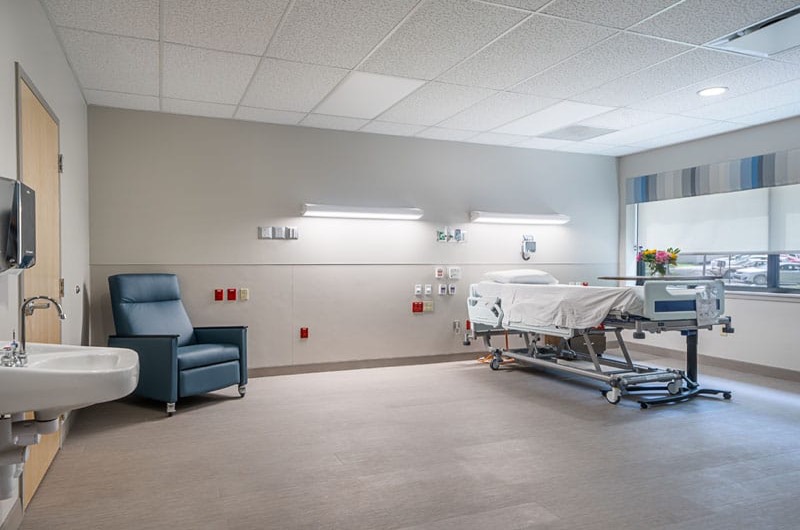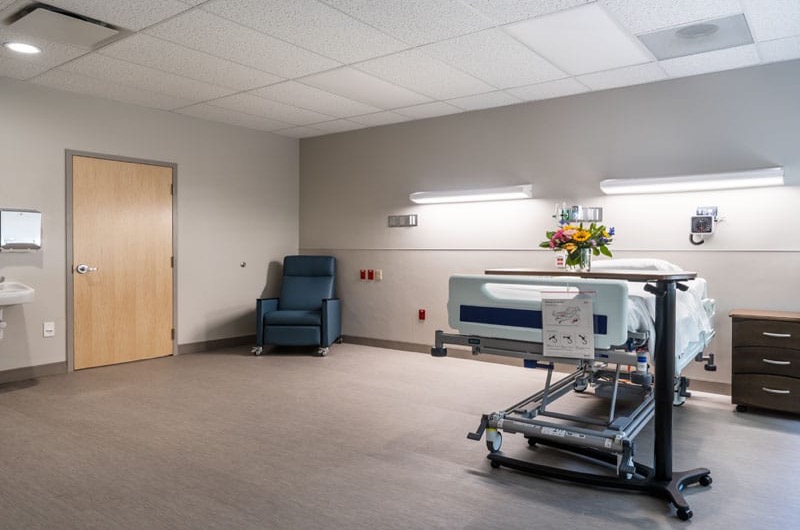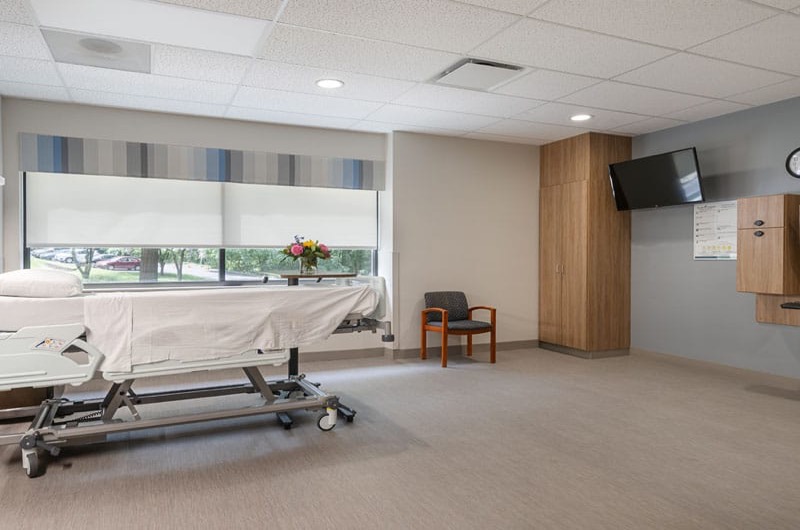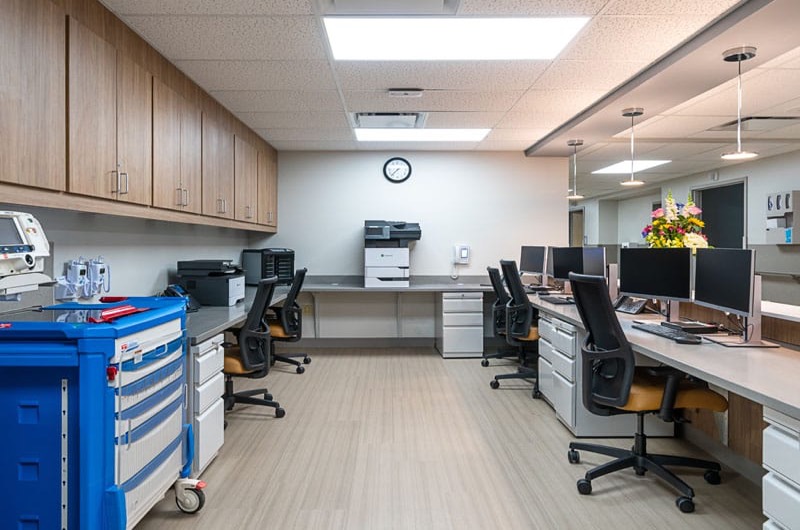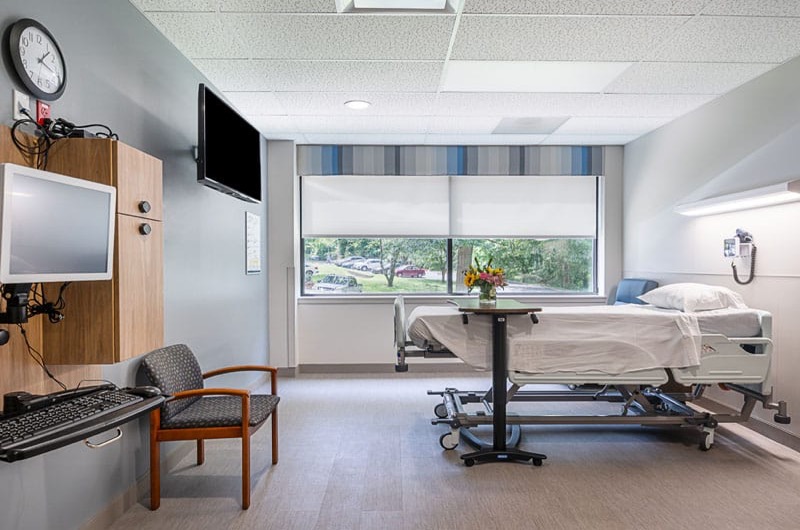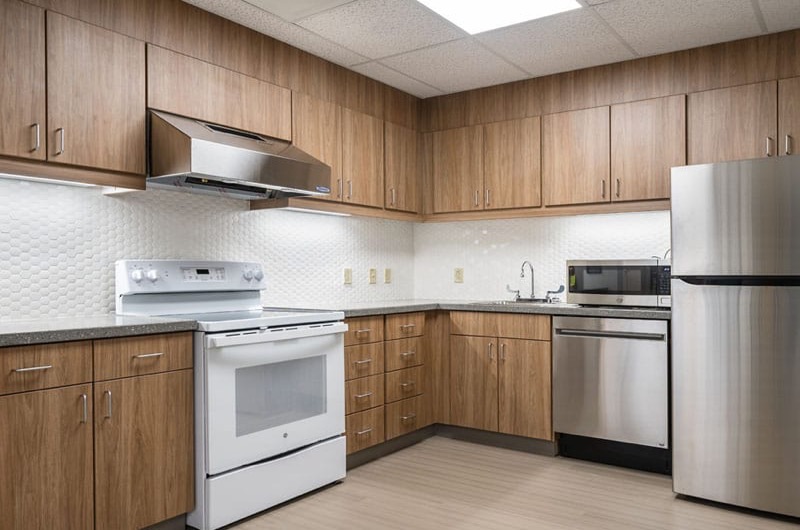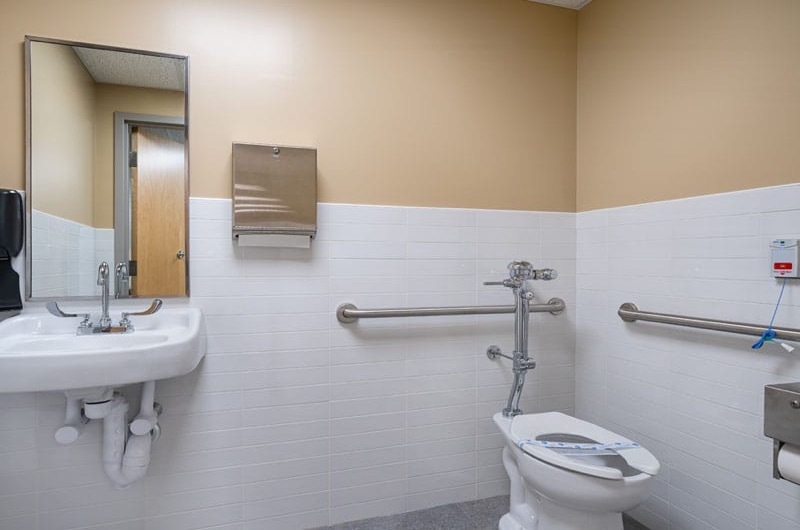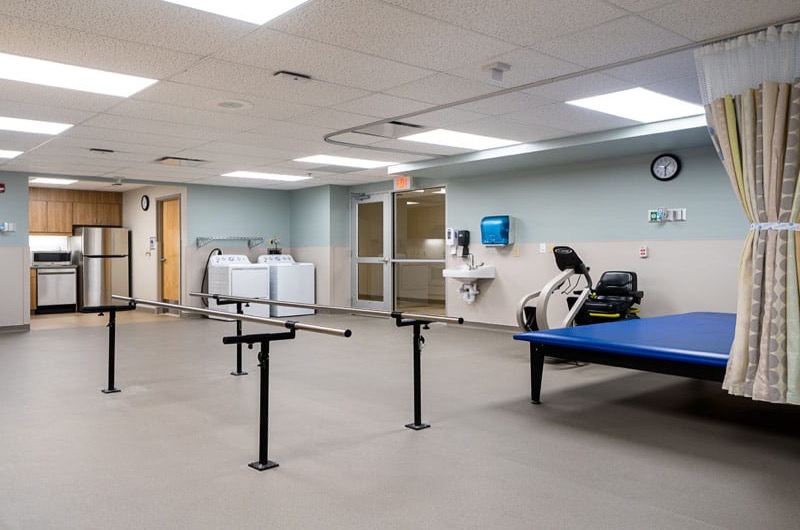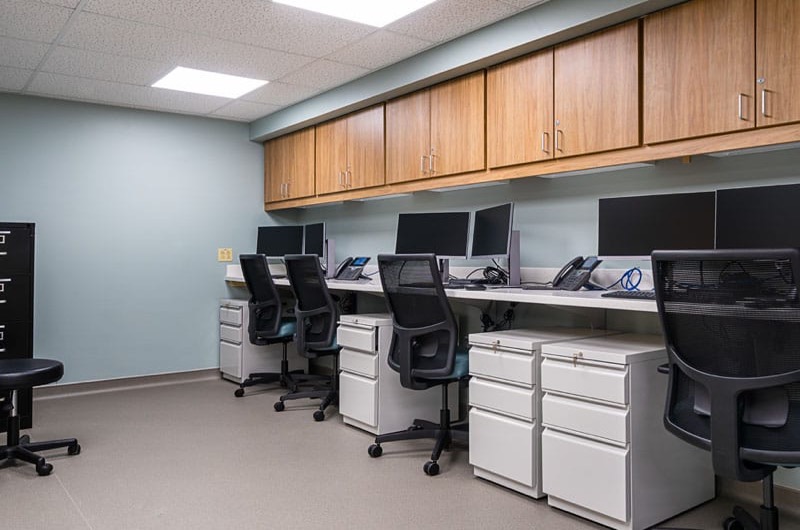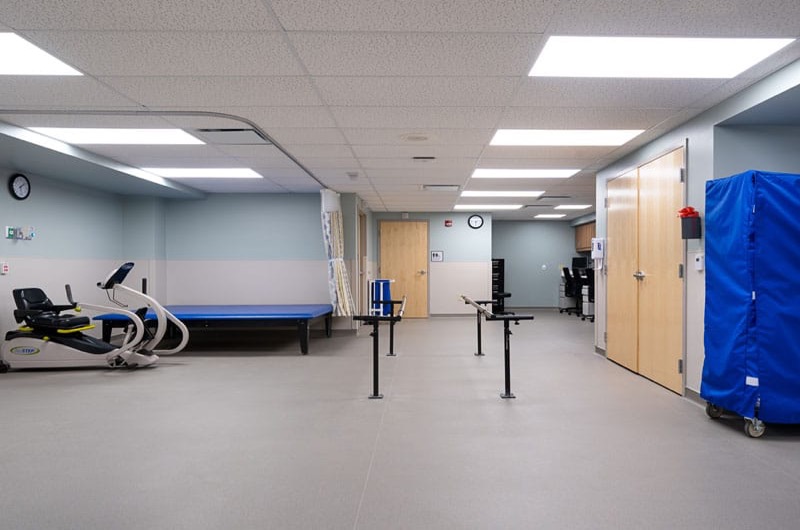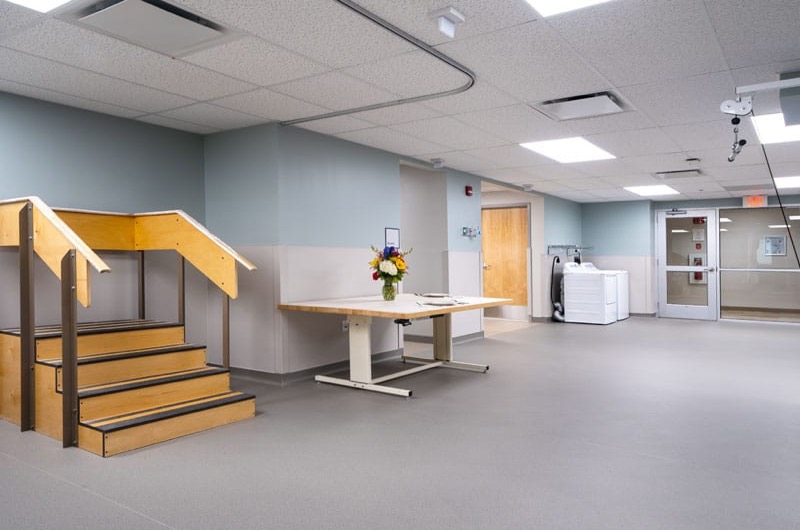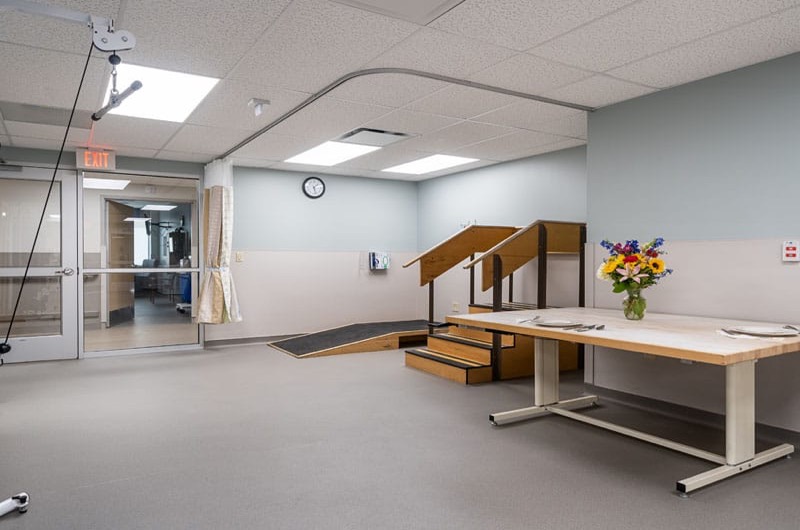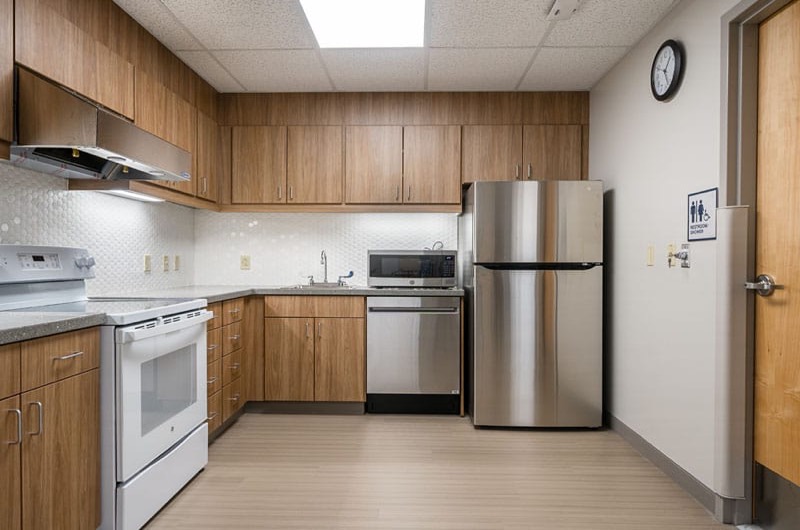Acute Rehab Unit
Our Acute Rehabilitation Unit (ARU) is located on the first floor of Kindred Hospital Philadelphia - Havertown. Our inpatient rehabilitation services are designed for people who have experienced the debilitating effects of an acute injury, impairment, or illness. The goal is to help each individual function as independently as possible through specialized treatment programs for conditions including stroke, brain injury, spinal cord injury, orthopedic injury, neurological conditions, amputation, and trauma.
About Kindred Hospital Philadelphia - Havertown ARU
The Kindred Hospital Philadelphia - Havertown ARU features nine newly renovated rooms, a new gym offering the latest in rehabilitation equipment and technology, and designated rooms for activities and dining.
Each patient room provides the amenities one would expect at home, including Wi-Fi, cable television, private bathrooms, and guest recliners. These clean, cozy settings allow patients to get the rest they need before and after rehab therapy sessions.
The ARU also offers outdoor areas that allow patients to practice ambulating or meet with family and friends outside.
To learn more about the Kindred Hospital Philadelphia - Havertown ARU, call: 610.536.2010.
Photo Gallery
The Inpatient Rehab Difference
We know that making the decision about where you receive your rehab services is important – especially with so many different options to consider. When you choose inpatient rehabilitation, including through Kindred Hospitals ARUs, you will be cared for by a team that understands your individual situation and shares the same goals you do – getting you home as healthy, safely, and as quickly as possible. And if you are a patient at a Kindred Hospital, you can continue your rehab without the hassle of transferring to a new facility.
Acute rehabilitation providers are highly specialized in getting individuals back home and functioning at the highest level possible. Under the direction of a physiatrist, a doctor specialized in rehabilitation and physical medicine, we offer 15 hours of therapy within a seven-day week, following guidelines from the Centers for Medicare and Medicaid Services. This is typically provided for three hours per day, five days a week. In addition, nursing care is offered 24 hours per day, seven days a week.
Inpatient rehabilitation settings are recommended by the American Heart Association/American Stroke Association for individuals recovering from stroke. In fact, treatment in the inpatient rehabilitation setting, like the Kindred Hospitals ARUs, have been shown to provide a higher level of care and achieve better results versus other types of rehabilitation programs.
For example, those receiving inpatient rehabilitation:
- Return home sooner
- Have greater success walking independently again
- Receive more doctor and nurse time and attention, including regular visits by their doctor
- Have lower rates of readmission to the hospital during or after treatment
What to Expect During Your Stay
From your first therapy session to your last check-in, our goal is to help you recover as fully as possible. When you first arrive, you'll be evaluated on activities such as eating, bathing, dressing, and walking or wheelchair usage, as well as your personal goals. This information will be used to develop your personalized treatment plan. You'll be evaluated again when you leave to measure your progress and help your team assess what help you will need when you go home.
Most patients receive a minimum of three hours of therapy each day for at least five days a week. Therapy takes place in individual and group settings, and sessions are scheduled for various times throughout the day. We encourage loved ones to be part of the patient’s rehabilitation program, and to offer encouragement and observe therapy sessions.
Your specialized care team of rehab experts includes:
- Physician
- Physical Therapist
- Occupational Therapist
- Speech-Language Therapist
- Rehabilitation Nurses
- Case Manager/Social Worker/Discharge Planner
Sample Daily Schedule
Your team will help guide you throughout your stay, but if you've never been to an inpatient rehabilitation program, you probably want to know what your stay will be like. Here's what you can expect during a typical day:
Morning
- Your nurse will start your day with any necessary medications and/or medical treatments.
- Nursing and therapy staff will assist you as needed with getting clean, dressed and to the restroom as well as provide training and support so you can learn to do as much as possible by yourself.
- Breakfast is served with your selections from a menu.
- You will have therapy scheduled throughout the day. Therapy typically begins between 7:00 and 9:00 a.m. Your therapy schedule is shared with you the night before so you know what to expect.
- Your morning therapy sessions will typically include two sessions, with a combination of physical, occupational and/or speech therapies.
Noon/Afternoon
- The lunch break usually begins around noon. Therapists will work with those who need help with swallowing or eating or require training for an adaptive device.
- After the lunch break, you will continue with your therapy sessions. As with the morning sessions, you'll have a combination of therapies and opportunities to take a break between or during sessions, as needed.
Evening
- Your day concludes with dinner and time to spend with family and other visitors.
- Your nurse will end your day with any necessary medications and/or medical treatments.
- Nursing staff will help you get ready for the night and reinforce what was learned in therapy so that your journey to greater independence continues after therapy has ended.
For additional information about the Kindred Hospital Philadelphia Havertown ARU, view our Online Brochure or call 610.536.2010.

